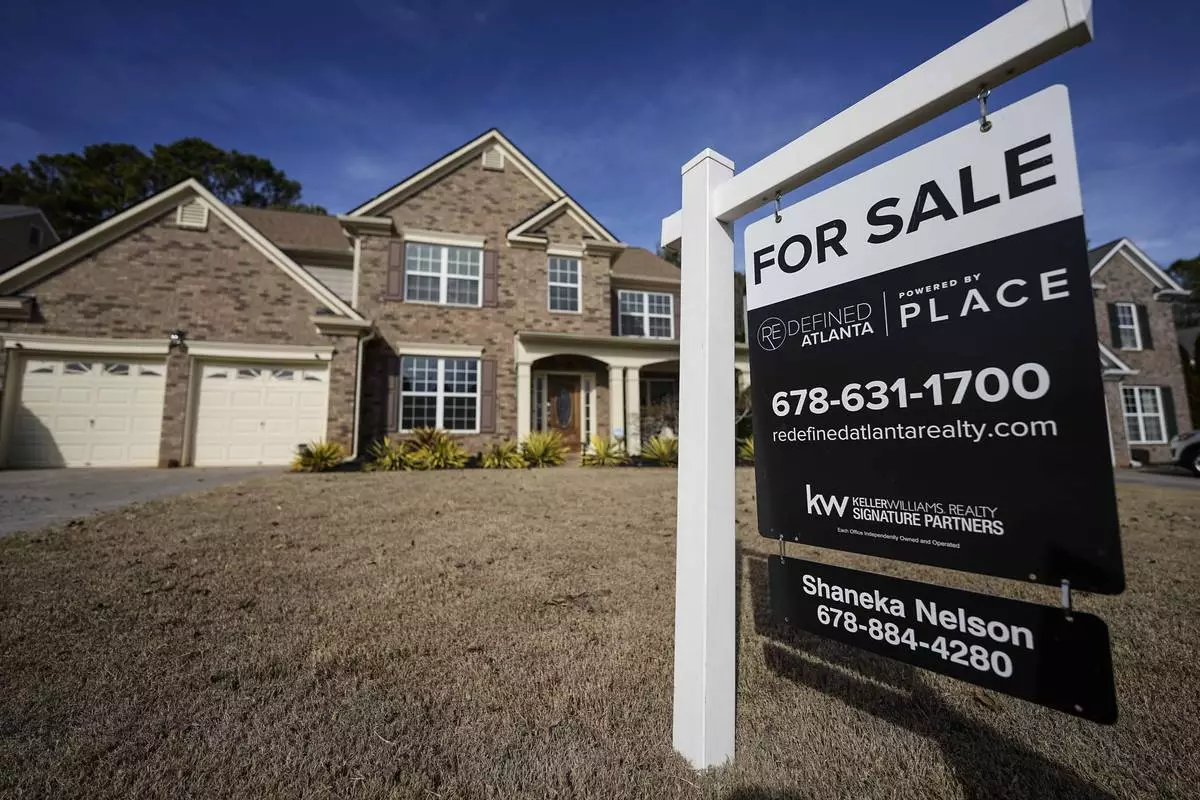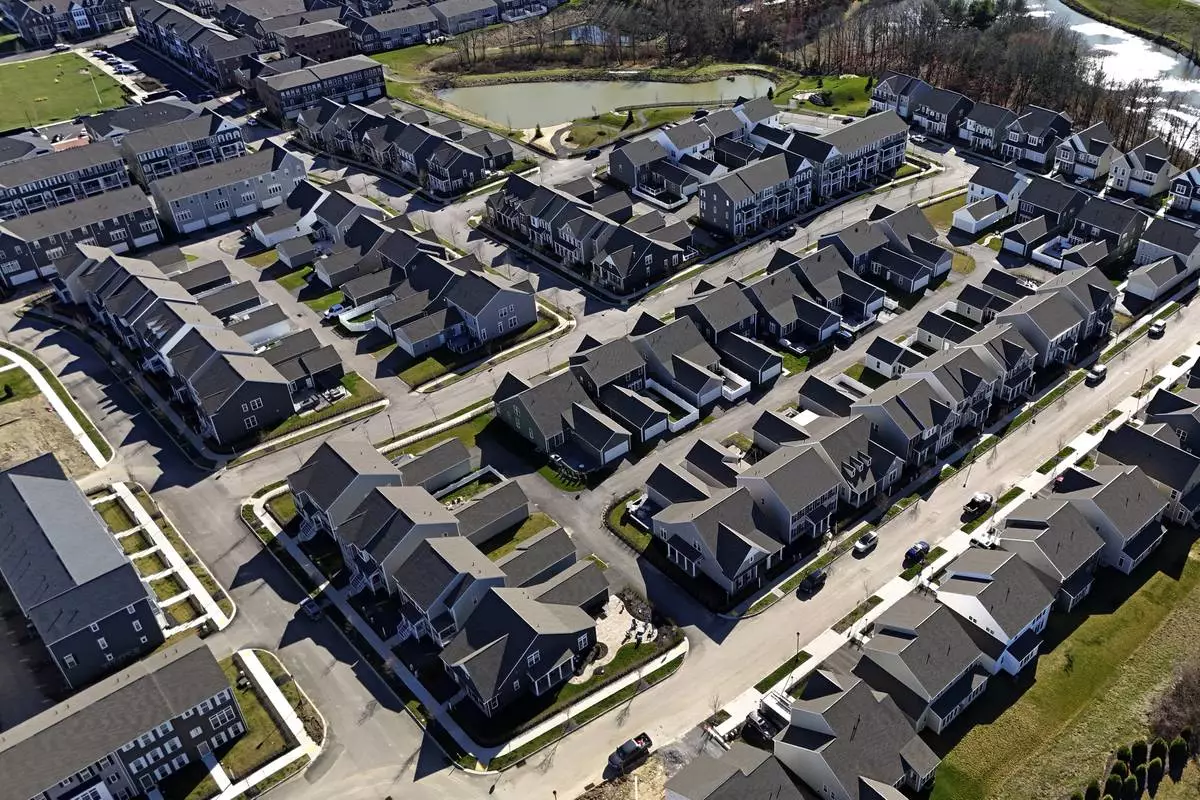The PWHL’s first expansion team will be based in Vancouver with an announcement scheduled for next week, a person with knowledge of the decision confirmed to The Associated Press on Friday.
The person spoke on the condition of anonymity because the league has not revealed its plans. The Province newspaper in Vancouver first reported the city being selected for PWHL expansion.
On hold for now is the league announcing a second expansion city, with Seattle being considered, the person said. The league has other candidates for expansion if discussions break down with officials in Seattle, the person added.
The Vancouver expansion announcement is expected to be made Wednesday, with media invited to attend a press conference billed as being an “historic announcement for sport in Vancouver and British Columbia.” The new team is expected to be based out of the Pacific Coliseum, the former home of the NHL Canucks.
The PWHL declined to verify any details by saying: “We’re continuing to finalize decisions related to expansion and look forward to sharing more details soon.”
The six-team league is in the midst of completing its second season and has spent the past six months evaluating more than 20 markets for the potential to expand by as many as two franchises.
The decision to select Vancouver meets several key criteria for the women’s pro league founded by Dodgers owner Mark Walter, who serves as the PWHL’s financial backer, and tennis icon Billie Jean King in June 2023.
Aside from being a large market, the region has a growing girls’ hockey base, which was evident in January, when a PWHL neutral site game in Vancouver drew a sellout crowd of 19,038 — the fourth-largest turnout for a league game.
Geography also plays a factor with the league seeking to broaden its reach across North America. The league currently has five teams — New York, Boston, Montreal, Ottawa and Toronto — based in the northeast, and one in St. Paul, Minnesota.
PWHL officials have privately expressed concern of a start-up pro women’s league being launched on the west coast.
Adding an expansion team in Seattle would make the most sense in part because of its proximity to Vancouver, while also already home to two pro women’s teams, the WNBA Storm and NWSL Reign FC. The PWHL’s neutral site game in Seattle in January drew a crowd of 12,608.
Other potential markets include Denver, Detroit and Quebec City, though it’s more likely the PWHL would desire a second expansion team based in the U.S.
The PWHL’s nine-city Takeover Tour of neutral games this season drew 123,601 fans in helping the league top the 1 million mark in attendance last month.
The PWHL's regular season resumes next week — with each team having three games left — following a three-week break coinciding with the women’s world championships being held in the Czech Republic. The four-team playoffs are set to open in the first week of May.
AP Women’s Hockey: https://apnews.com/hub/womens-hockey

FILE - Fans gather to watch the Montreal Victoire and the Toronto Sceptres warm up before a PWHL hockey game in Vancouver, Wednesday, Jan. 8, 2025. (Ethan Cairns/The Canadian Press via AP, File)

FILE - Montreal Victoire's Claire Dalton (42) and Toronto Sceptres' Allie Munroe (12) vie for the puck during first period PWHL hockey action in Vancouver, on Wednesday, January 8, 2025. (Ethan Cairns/The Canadian Press via AP, File)
LOS ANGELES (AP) — Home ownership is receding further out of reach for most Americans as elevated mortgage rates and rising prices stretch the limits of what buyers can afford.
A homebuyer now needs to earn at least $114,000 a year to afford a $431,250 home -- the national median listing price in April, according to data released Thursday by Realtor.com
The analysis assumes that a homebuyer will make a 20% down payment, finance the rest of the purchase with a 30-year fixed-rate mortgage, and that the buyer’s housing costs won't exceed 30% of their gross monthly income — an often-used barometer of housing affordability.
Based off the latest U.S. median home listing price, homebuyers need to earn $47,000 more a year to afford a home than they would have just six years ago. Back then, the median U.S. home listing price was $314,950, and the average rate on a 30-year mortgage hovered around 4.1%. This week, the rate averaged 6.76%.
The annual income required to afford a median-priced U.S. home first crossed into the six figures in May 2022 and hasn't dropped below that level since. Median household income was about $80,600 annually in 2023, according to the U.S. Census bureau.
In several metro areas, including San Francisco, Los Angeles, New York and Boston, the annual income needed to afford a median-priced home tops $200,000. In San Jose, it's more than $370,000.
Rock-bottom mortgage rates turbocharged the housing market during the pandemic, fueling bidding wars for homes that pushed up sale prices sometimes hundreds of thousands of dollars above a seller initial asking price. U.S. home prices soared more than 50% between 2019 and 2024.
The U.S. housing market has been in a sales slump since 2022, when mortgage rates began to climb from their pandemic-era lows. Sales of previously occupied U.S. homes fell last year to their lowest level in nearly 30 years. In March, they posted their largest monthly drop since November 2022.
It's not all bad news for prospective homebuyers.
Home prices are rising much more slowly than during the pandemic housing market frenzy. The national median sales price of a previously occupied U.S. home rose 2.7% in March from a year earlier to $403,700, an all-time high for March, but the smallest annual increase since August.
In April, the median price of a home listed for sale rose only 0.3% from a year earlier, according to Realtor.com.
Buyers who can afford current mortgage rates have a wider selection of properties now than a year ago.
Active listings — a tally that encompasses all homes on the market except those pending a finalized sale — surged 30.6% last month from a year earlier, according to Realtor.com. Home listings jumped between 67.6% and 70.1% in San Diego, San Jose and Washington D.C.
As properties take longer to sell, more sellers are reducing their asking price. Some 18% of listings had their price reduced last month, according to Realtor.com.
“Sellers are becoming more flexible on pricing, underscored by the price reductions we’re seeing, and while higher mortgage rates are certainly weighing on demand, the silver lining is that the market is starting to rebalance,” said Danielle Hale, chief economist at Realtor.com. "This could create opportunities for buyers who are prepared.”

FILE - A sign announcing a home for sale is posted outside a home, Thursday, Feb. 1, 2024, in Aceworth, Ga., near Atlanta. (AP Photo/Mike Stewart, File)

FILE - A housing development in Cranberry Township, Pa., is shown on March 29, 2024. (AP Photo/Gene J. Puskar, File)













